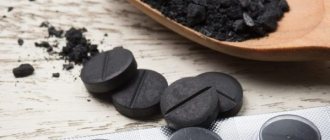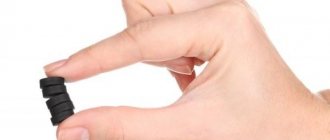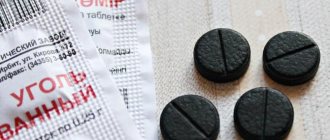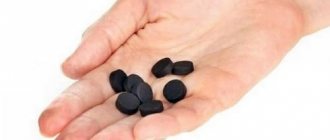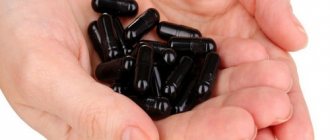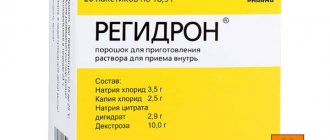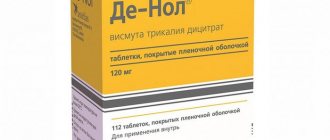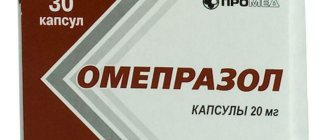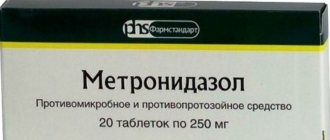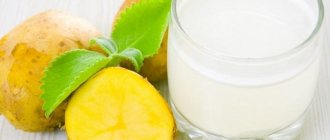Activated carbon benefits and harms. What is activated carbon used for?
The article discusses a basic set of questions about how to use activated carbon and for what purposes it may be needed at home and why it should always be kept in a home medicine cabinet. It can also be used for outdoor use and aquarium use.
It is worth paying attention to the fact that long-term use of any tablets, including these, can cause side effects, just like alcohol taken with the medicine. To avoid problems, the instructions for the medicine and a mandatory consultation with a doctor will help, since this and any other information is presented for informational purposes only.
What are activated carbon tablets used for and use before or after meals?
Activated carbon tablets have a wide spectrum of effects on the human body. They are used for food or drug poisoning, for the treatment of dysentery, cholera and other infectious diseases.
Activated carbon alleviates the condition of patients with gastritis or prolonged colitis. It has the property of reducing the acidity of gastric juice and eliminating heartburn. Charcoal tablets are indicated for patients with severe diarrhea accompanied by vomiting. Activated charcoal should be taken between meals (1.5-2 hours after meals and 1.5 hours before meals).
Frequent use of activated carbon is harmful
Frequent use of activated carbon can harm the body. This is due to the fact that coal is an excellent adsorbent and, together with poisons and toxins that enter the body, can absorb amino acids, enzymes and vitamins necessary for life.
In another article, read about what vitamin A is for. Clinical studies have shown that long-term and regular use of activated charcoal can cause nausea, vomiting and other unwanted toxic symptoms. Contraindications to taking the medicine are diseases associated with internal bleeding and ulcerative lesions.
How to use activated carbon for weight loss. Method of use for weight loss, doses and dosage
Doctors recommend taking activated charcoal based on your weight. The daily dose is 1 tablet per 10 kg (i.e., with a weight of 75 kg you need to take 7.5 tablets). It is not very convenient to swallow them one by one, so the entire dose of activated carbon should be crushed and diluted in a glass of boiled water. Divide the resulting suspension into several parts and drink, shaking, between meals.
Taking activated charcoal alone will not lead to weight loss. With its help, the body can be rid of toxins, but not fats. To lose excess weight, you need not only to use miracle pills, but also to make physical efforts by playing sports and properly organizing your diet.
Activated carbon used in medicine, industry, aquarium, cosmetology
Activated carbon is one of the best sorbents and this property is widely used in many areas of human activity. In medicine, activated carbon is taken orally to cleanse the body of toxins, waste and other harmful substances, and is also used for hemofiltration (blood purification).
In industry, activated carbon is indispensable for purifying vapors, gases, oils, acids, liquids and water from harmful impurities. Activated carbon is included in various cosmetic products; it makes excellent cleansing and rejuvenating face masks.
On the Internet you can read information about the use of activated carbon to purify water in an aquarium. You should know that in this case, special aquarium tablets are used, and not those sold in pharmacies.
Activated carbon for use in children and during pregnancy
Activated carbon is a harmless and proven drug. It is prescribed to both children and pregnant women in all cases when it is necessary to cleanse the body of harmful substances, as well as in case of poisoning and intestinal infections. The only disadvantage of this drug is that the sorbent absorbs everything indiscriminately, both “bad” and beneficial substances. Therefore, after completing a course of treatment with these tablets, it is necessary to replenish the supply of vitamins and probiotics.
Is it possible to drink Allohol for pancreatitis: composition, instructions and contraindications
Only the attending physician can prescribe Allohol for pancreatitis after a thorough examination and diagnosis. The choleretic drug and its analogues are aimed at regulating the production of bile, the functioning of the digestive system and the prevention of stone disease. Allochol is used in the treatment of chronic inflammation of the pancreas. Taking it can prevent the development of complications and promote rapid regeneration.
Choleretic Allohol: composition and effect of the drug
Allochol contains garlic extract, activated carbon, nettle extract, and dried animal bile. The medicine is intended to:
- Prevent stagnation and speed up the flow of bile.
- Improve bile secretion during the day.
- Restore the functioning of the liver, pancreas and gall bladder.
- Act as a preventive measure against diseases.
- Prevent the formation of stones.
- Improve the functioning of the gastrointestinal tract.
- Mute the pain syndrome.
- Help avoid flatulence, constipation, etc.
Allohol: what are the indications and are there any contraindications?
This medicine is prescribed by doctors for the following diagnoses:
- The initial stage of liver cirrhosis.
- Chronic constipation.
- Hepatitis in the chronic stage.
- Cholecystitis, Cholangitis and Cholelithiasis.
- Pancreatitis.
It can often be recommended for the purpose of cleansing the liver. For pancreatitis, Allochol acts as a replacement therapy.
In general, the drug is well tolerated by patients. In rare cases, gastrointestinal disorders have been observed. If the body reacts negatively to the pills, stop taking them. The medicine is not used if the inflammation has reached the acute stage. Once remission is achieved, use can be resumed.
Before you start drinking Allochol, carefully study the contraindications:
- Acute form of hepatitis;
- Jaundice;
- Acute form of enterocolitis;
- Hepatic dystrophy;
- Calculous cholecystitis;
- Peptic ulcer disease.
- Hypersensitivity to the components of the drug.
Instructions for use of Allochol: dosage, storage conditions and expiration date
The tablets are taken orally after meals. For adults, the dose is 1 or 2 tablets three to four times a day. The medicine is taken in a course of 3 or 4 weeks. Repeated appointments are resumed no earlier than 3 months from the date of completion of the previous one.
Side effects include stool disorders and diarrhea. In case of allergic reactions or other unpleasant effects following the use of Allochol, you should immediately stop the course and contact your doctor with complaints.
The optimal storage conditions for the medicine are a dry and cool place. Shelf life is 4 years from the date of release and packaging of the tablets. Despite the fact that Allochol is available without a prescription, we strongly recommend that you consult with a specialist and not self-medicate.
Can children drink Allochol?
The dosage of Allochol is determined by the age and nature of inflammation in the child.
- Up to 7 years:
- In the acute form of the disease - 0.5 tablets daily. twice or thrice a day for 1-2 months.
- In the chronic form of the disease - 1 tablet daily. three times a day for 3-4 weeks.
- After 7 years:
- In acute forms of the disease - 1 tablet daily. twice or thrice a day for 1-2 months.
- In the chronic form of the disease: daily 2 tablets. three times a day for 3-4 weeks.
The main condition for the effectiveness of the drug is not to take it on an empty stomach. However, parents should not force food into their child. It is enough to make sure that the medicine is not taken on an empty stomach. For this purpose, a medium apple, peach, bun or piece of cake will do - something that children will happily eat without parental moralizing.
Analogues of Allochol: Hofitol, Holosas, Cholenzym
The most popular analogues are Hofitol, Holosas and Cholenzym. All of them are of natural origin (plant or animal).
Chophytol (artichoke leaves) is a choleretic choleretic agent, thanks to which it is possible to lower urea and cholesterol levels in the blood. Unlike the original drug, it is taken before meals. This medicine is contraindicated for children under 6 years of age.
Holosas (rose hips) is a choleretic, increasing the production of bile and its acids, improving intestinal motility, and has an anti-inflammatory effect. It is recommended half an hour before meals. The product is not used by children under 3 years of age, as well as by diabetics and patients with gallstone disease.
Cholenzym is a combination drug of animal origin. Thanks to the course of medication, it is possible to improve the functioning of the digestive system due to the rapid absorption of proteins, fats and carbohydrates. Cholenzym should not be taken by children under 12 years of age.
The benefits of activated carbon for the liver. Liver cleansing with activated carbon
One of the available and effective methods is called liver cleansing with activated carbon. Taking this simple remedy helps to cope not only with disorders, poisoning and bloating, but also cleanses the internal organs of toxins, heavy metals and cholesterol. At the same time, without requiring significant financial costs and changing the patient’s daily routine.
How does the drug work?
Activated carbon is the most common sorbent on the modern pharmaceutical market. It is usually taken for food poisoning, diarrhea, or to cleanse the intestines. Activated carbon is useful for the liver; it cleanses this natural filter of the body from toxins, waste and heavy metals accumulated in it. Indicated for use in cirrhosis, hepatitis and other liver pathologies.
The absorbent properties of the drug help cleanse the blood.
The tool works in several directions:
- absorbs harmful substances;
- cleanses the blood, improving its composition;
- removes excess liquid;
- normalizes the level of bilirubin and cholesterol;
- promotes the binding of bile acids, the production of bile;
- relieve symptoms of intoxication;
- improve the condition of liver pathologies by relieving itching, reducing jaundice, and stabilizing blood pressure.
General principles of cleaning
Liver cleansing with activated carbon should only be done after consultation with a doctor; despite the harmlessness of the procedure, incorrect implementation can cause constipation, dysbacteriosis or other unpleasant side effects. Along with harmful substances, moisture and beneficial substances are removed from the body, and the microflora is disrupted.
Liver cleansing is carried out according to the following basic principles:
- The chosen cleaning system must not be violated.
- It is important to drink a lot of non-carbonated water (2-3 liters).
- Do not exceed the amount of 1 tablet per 10 kg of patient weight.
- It is recommended to follow a diet excluding fatty, fried foods and alcohol.
- Take charcoal 2 hours before or after meals.
- After finishing, take a vitamin-mineral complex and probiotics.
- It is important to use the sorbent separately from other medications.
How is it carried out?
The dose of the drug depends on the person’s weight.
There are several ways to cleanse the liver with charcoal:
- Take 2-3 tablets in the morning on an empty stomach and in the evening after the last meal. The duration of cleansing is from 15 to 30 days. After this, a break of the same duration must be taken.
- Divide 10 tablets into 3 doses and take throughout the day. The duration of therapy is no more than 2 weeks.
- Starting with 1 tablet per day, take the medicine, increasing by 1 tablet each subsequent time until you reach the maximum of 1 tablet. per 10 kg of weight. Then gradually reduce the amount.
Contraindications and harm
Increasing the permissible dose will not help to better cleanse the body; this is fraught with constipation and dysbacteriosis.
Together with harmful substances, the body gets rid of vitamins, minerals and beneficial microflora of the gastrointestinal tract. Therefore, after completing cleansing procedures, it is recommended to take probiotics. It is contraindicated to cleanse with activated charcoal if you have cancer of the liver or gastrointestinal tract, gastritis, intestinal obstruction or bleeding. You cannot combine a course of medication with cleaning with a sorbent, since the latter washes out the healing components of the medicine.
Side effects and overdose
Long-term and uncontrolled use of Activated charcoal preparations can lead to acute hypovitaminosis and impaired absorption of nutrients from the small intestine. In addition, an overdose of sorbent can cause diarrhea, constipation, and uncontrollable vomiting. When hemoperfusion is carried out using coal, hemorrhage, hypothermia, thromboembolism, hypoglycemia, hypocalcemia, and decreased pressure are sometimes observed. A medicine containing a large amount of sorbent can provoke a disturbance of the intestinal microflora and dysbacteriosis.
Terms of sale and storage
Activated charcoal is freely available in Russia and is available from pharmacies without a doctor’s prescription in unlimited quantities. The medication should be stored in a dark, dry place out of reach of small children and pets.
Activated carbon is contraindicated. Contraindications of activated carbon and its side effects
Activated carbon is a porous enterosorbent with high detoxification properties. Thanks to this, the drug is very popular, but in some cases it is recommended to refrain from using it. Let's take a closer look at the contraindications of activated carbon and the undesirable consequences of taking it.
What diseases and activated carbon are incompatible?
For peptic ulcers of the stomach and duodenum, ulcerative colitis, pancreatitis, the use of activated carbon is strictly contraindicated. The reason for this is that the drug turns stool black. A similar color can be observed with ulcerative bleeding, since in this case the feces mix with the blood digested in the intestines and take on the appearance of tar. Coal can mask the bleeding, and time to provide emergency care to the patient will be missed. For the same reason, you should not take charcoal for bleeding of the gastrointestinal tract of various etiologies. These contraindications of activated carbon do not apply to other sorbents - Smecta, Enterosgel, Polysorb. In case of individual intolerance caused by hypersensitivity to the drug, it is also necessary to stop taking it.
Side effects
Activated carbon has one significant drawback. Lacking selectivity, it absorbs everything - both toxins and beneficial substances. As a result of its absorption of beneficial vitamins, fats, proteins, and carbohydrates, vitamin deficiency and metabolic disorders of the body can develop. To avoid this, it is recommended to take charcoal in short courses. To reduce the contact of the drug with beneficial substances, you should not combine charcoal intake with food. The gap must be at least an hour. The same rule applies to the combination of coal with other drugs (contraceptive, cardiac, vascular), as it reduces their effectiveness. And the simultaneous use of charcoal with antitoxins and antidotes is completely unacceptable. Based on this and taking into account the contraindications of activated carbon, only a short course is recommended for poisoning and food infections. Also, taking activated charcoal can cause or worsen constipation. In such cases, it would be more correct to regulate stool with the help of laxative foods (prunes, beets, kefir).
Is it possible to lose weight from activated carbon?
Losing weight from activated carbon is indeed possible, but not by much. The mechanism of action of the drug is based on reducing the calorie content of food due to the adsorption and excretion of fats. But there is also a downside to such a diet. Together with fats, vitamins and minerals necessary for the body are bound. As a result, along with the calorie content, the nutritional value of the products is depleted. Therefore, the use of activated carbon for weight loss is a controversial issue. Do not forget that this is a drug recommended for use in certain cases. When deciding on a “coal diet”, you need to take into account the contraindications of activated carbon and the possible consequences for the body.
During pregnancy
The action of activated carbon occurs locally; the suspension of active substances is not absorbed into the bloodstream, so the sorbent does not act directly on the fetus. However, it should be remembered that an excess of the substance helps to reduce the absorption of vitamins and minerals, this can lead to hypovitaminosis and hypocalcemia, which pose a danger to the fetus in the early stages of pregnancy. An overdose of coal is also dangerous because it can cause uncontrollable vomiting and dehydration.
- How to apply decorative plaster
- How to increase the page file in Windows 7
- What does duplex scanning of blood vessels show?
Activated carbon for weight loss. How and when to take activated charcoal for weight loss
If you have heard that activated carbon is an excellent remedy for losing extra pounds, do not rush to smile skeptically and raise your eyebrows.
Many people know that this is a sorbent, thanks to which substances that interfere with its functionality are removed from the body. In this way they fight against poisoning and allergic manifestations.
But few people know how to lose weight with activated carbon. Therefore, we will consider in detail the implementation of such procedures.
If the question of how to take activated carbon during intoxication does not arise, then when it comes to using it for weight loss, it is important to know the regimen and amount of the drug that will have an effective effect.
Photo: arabio.ru
Several methods have been developed. They should be studied and tested all in order to then choose the most optimal one for each specific case.
Simply put, you should learn how to drink activated charcoal to effectively lose pounds:
- Option 1.
To activate metabolic processes, take activated carbon at the rate of 1 tablet per 10 kg of weight.
If you do not adhere to a diet, then you should gradually approach this amount according to the following scheme: 1st day - 3 tablets, all subsequent ones according to the +1 tablet principle. That is, day 2 - 4 tablets, day 3 - 5, etc. until you reach the desired amount.
Stay on this regimen for 10 days and start reducing the amount of the drug by 1 pc. daily.
- Option 2.
If you follow special dietary rules, then throughout the day take 10 tablets, several at a time, before meals. Weight does not play a role in this case.
- Option 3.
Take 2 tablets in the morning before meals. Drink 200 ml of clean water.
Please note that if there are contraindications or chronic diseases, such procedures are not recommended.
Such charcoal diets are designed for ten days, otherwise the body will relax and cease to function adequately.
Effective choleretic agents for cholecystitis
Cholecystitis refers to inflammatory processes in the gallbladder and bile ducts caused by stagnation of bile. The disease is characterized by acute and chronic course. Doctors call the main cause of acute cholecystitis the presence of calculi (stones) in the gallbladder, which prevent the normal outflow of bile. The chronic form of the disease develops with prolonged irritation of the bladder walls. Factors influencing the development of cholecystitis are infectious diseases, irregular and unbalanced diet, hereditary predisposition, and sedentary lifestyle. In the absence of adequate treatment, chronic cholecystitis often develops into an acute form.
Cholecystitis requires complex therapy, carried out under the supervision of a specialist. Treatment often includes choleretic drugs prescribed to the patient to normalize the outflow of bile and prevent the formation of stones in the gallbladder. Such medications can be prescribed by a doctor only if the patient has no calcified stones in the gall bladder as a result of an ultrasound examination. Liquefing bile if stones are present is very dangerous, as they can block the bile ducts and prevent its outflow.
Ursosan - hepatoprotector for cholecystitis
Often, for people suffering from cholecystitis, doctors recommend choleretic drugs, the action of which is aimed not only at improving the outflow of bile, but also at dissolving small cholesterol gallstones. These drugs include Ursosan, a hepatoprotector based on ursodeoxycholic acid. Its dosage directly depends on the patient’s body weight; only the attending physician should select it. The following factors are contraindications to the use of the drug:
- gallbladder dysfunction;
- the presence of calcified stones in it;
- obstruction of the bile ducts;
- pathological changes in the liver, pancreas and kidneys;
- individual intolerance to the components included in the medicine;
- pregnancy and lactation;
- children under 5 years of age.
Side effects during treatment with Ursosan include:
- loose stools or upset stomach (common);
- urticaria, pain in the right upper abdomen, calcification of gallstones (rare).
Ursosan is intended for long-term use under medical supervision. Analogues of this medicine are drugs such as Ursofalk, Ursohol, Ukrliv, Choludexan, Urdoxa.
Herbal preparations Allohol and Chofitol
A herbal medicine for cholecystitis is Allochol, available in tablet form. The drug contains extracts of nettle and garlic, animal bile, and activated carbon. Allochol increases the secretion of bile, has a choleretic and laxative effect, and improves the functioning of the gastrointestinal tract. Indicated for non-calculous (non-stone) cholecystitis, biliary dyskinesia, chronic hepatitis, cholangitis, constipation. Contraindications to treatment with Allochol are:
- gallstones;
- acute form of pancreatitis and hepatitis;
- obstructive jaundice;
- ulcers in the stomach and duodenum.
Allochol is not used in the treatment of children under 3 years of age. Usually the drug is well tolerated by patients and does not cause side effects. Sometimes patients may experience allergic reactions and stomach upset while taking the medication. The drug must be taken as prescribed by a doctor. The course of treatment with Allochol can last up to 4 months.
An effective herbal choleretic agent, actively prescribed by doctors for cholecystitis, is Chofitol. Its main active ingredient is field artichoke leaf extract. The drug is available in the form of tablets, suspension and solution for injection in ampoules. It is used for non-calculous cholecystitis, biliary dyskinesia, acetonotomy, chronic hepatitis, nephritis and renal failure. Contraindications to the use of Chofitol for cholecystitis are:
- the presence of stones in the gallbladder;
- obstruction of the bile ducts;
- any acute liver and kidney diseases;
- individual intolerance to artichoke.
Side effects of Hofitol include allergic reactions and stomach upset. The dosage of the drug is determined by the doctor. You need to take the medicine 20 minutes before meals. Like any choleretic drugs, Hofitol can be taken only on the recommendation of a doctor.
Activated carbon cleanses the body. Description of the drug
Activated carbon is a drug that can neutralize dangerous toxins and chemicals that enter the body orally.
In medicine, it is most often used to treat acute poisoning and intoxication conditions. This drug is able to bind, neutralize and remove from the intestines dangerous substances and toxins that enter the body with food or drinks. Activated carbon is used both at the stage of providing first aid to a poisoned person, and during subsequent treatment and recovery of the body.
Self-use of activated carbon, without prior consultation with the attending physician, is possible only in acute cases, at the stage of providing first aid to a poisoned person. Long-term use of this sorbent should be discussed with your doctor.
Indications
Activated carbon is prescribed for the treatment of the following pathological conditions:
- Increased flatulence, intestinal colic, gas formation.
- Dyspepsia.
- Treatment of intoxication due to chemotherapy and radiation therapy.
- Poisoning with food, medicines, alcohol, salts of heavy metals, alkaloids, various chemicals.
- Preparation for intestinal examination (to reduce flatulence).
- Acute allergic conditions (the drug is especially effective when the allergen enters the body orally).
Indications and contraindications for use
Purpose principles
The drug can be taken in the following cases:
- poisoning and intoxication;
- inflammatory and infectious processes;
- increased gas formation and flatulence;
- fermentation and sepsis in the intestines;
- hypersecretion of gastric juice;
- dysfunction of the liver and kidneys due to their diseases;
- metabolic disorders;
- pancreatitis.
The use of this remedy for pancreatitis results in improved intestinal function and relieves pain.
In acute pancreatitis, it helps to reduce dyspepsia and relieve pain. In the case of a protracted chronic form of the disease, it is used to cleanse the blood of decay products and remove residual masses of food that have not been absorbed due to the poor condition of the pancreas. Indicated to improve intestinal function.
In general, regular use of this remedy for pancreatitis helps achieve the following results:
- elimination of intoxication;
- decrease in acidity;
- normalization of blood clotting parameters;
- reduction of dyspeptic symptoms;
- improvement of gastrointestinal motility;
- general correction of the condition of the mucous membrane of the stomach and intestines.
Cautions
Contraindications for the use of activated carbon are internal bleeding in the gastrointestinal tract, the presence of which may be indicated by the presence of blood in the vomit. Peptic ulcers and individual intolerance to the drug cannot be treated with charcoal. It is not recommended to take it during pregnancy, as this can lead to disruption of the body's water balance, and for the same reason, those suffering from constipation should be wary.
Mode of application
Dosage of activated carbon for children and adults
For adults, charcoal is prescribed in a dose of 1-2 g (4-8 tablets) 3-4 times a day. If a person is not able to swallow them, then the required amount is crushed and poured into half a glass of chilled boiled water. Should be taken one hour before meals and 2 hours before or after taking other medications. The course of treatment for poisoning is 3-5 days, for allergic phenomena - up to 14, for flatulence (gas formation) - up to 7. Acute poisoning is treated by gastric lavage using the same charcoal, then given orally.
Children are dosed at the rate of 0.05 g/kg 3 times a day. For example, if a child weighs 20 kg, you can give 4 tablets of 250 mg per day.
